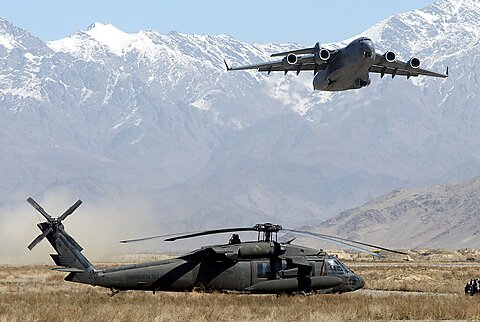Brandan P. Buck
This morning, President Trump asserted that his administration is attempting to “get back” Bagram Airfield (BAF), the Soviet-built and formerly US-occupied military facility in Afghanistan. According to CNN, the administration wants to reoccupy the facility to surveil western China, improve access to rare earth minerals, counter the Islamic State’s (ISIS) presence in the region, and serve as a diplomatic facility. Assuming this is a serious policy proposal, the United States government does not need to take Bagram to address these strategic concerns, and retaking the facility presents risks of its own that would outweigh any potential benefits.
While Bagram is indeed close to western China and could in theory present an intelligence-gathering platform, that proximity is outweighed by the costs and undermined by other alternatives. The United States possesses a multitude of remote intelligence collection platforms. From satellite systems to signals and cyber collection, the intelligence community is not blind over China. While none of these sources constitute a panacea for collection, they offer intelligence-gathering capabilities without the liabilities of operating a remote base in a hostile part of the world.
Similarly, the rare earths argument obscures the central issue, which is not the supply but rather the bottleneck in refining them. Yet, given global market demand, domestic producers are quickly filling this void. The idea that the US would need Bagram to gain access to rare earths in Afghanistan is a solution to a nonexistent problem, one that would incur risks for little gain.
Furthermore, parking a small military contingent at Bagram, even if feasible, would present Islamist militants, including Islamic State-Khorasan Province (ISIS‑K), with a target to shoot at. ISIS‑K, despite sharing the branding with the now-defunct Islamic State in Syria and Iraq, is hardly a serious threat to the United States homeland. The group is mortal enemies with every state actor in the region, including the Taliban. The idea that the US needs to retake Bagram in order to fight or contain ISIS‑K strains credulity and would, in fact, inflame the very issue it would be purported to solve.
As for serving as a diplomatic facility, assuming sincerity on the part of the administration, retaking BAF is superfluous to that objective. If the Trump administration wants to thaw relations with the Taliban, it could take other steps without incurring the exposure, such as establishing a remote diplomatic mission in a neutral country or engaging with Kabul through intermediaries. None of these would involve operating a remote and overexposed military facility on the other side of the planet.
Bagram’s reoccupation is neither practical nor necessary. The US doesn’t need the austere facility to surveil China, and solutions to the rare earths problem lie elsewhere. Using it as a forward base to fight ISIS‑K would create more problems than it would solve and become an albatross rather than a diplomatic tool. The president ought to leave the US occupation of Bagram, much like the failed war in Afghanistan, firmly in the past.

